MercoPress. South Atlantic News Agency
Tag: renewable energy
-
Friday, June 9th 2023 - 11:15 UTC
US$ 4 bn investment on green hydrogen launched in Uruguay

Uruguayan President Luis Lacalle Pou Thursday announced that US$ 2 billion will be invested in the construction of a green hydrogen plant in Paysandú. The work to begin this year will employ between 1,500 and 3,200 jobs and the plant itself will offer some 300 permanent jobs. Another US$ 2 billion will be invested in renewable energy projects.
-
Tuesday, November 22nd 2022 - 20:50 UTC
Uruguay confident in EU-sponsored sustainable energy matrix program
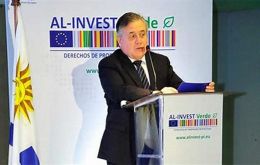
Uruguay's Industry Minister Omar Paganini highlighted the AL-Invest Verde program for its ambitiousness regarding sustainable development which will position the South American country as a regional innovation hub.
-
Monday, October 31st 2022 - 10:25 UTC
Energy security or clean energy: Germany dismantles wind farm to expand lignite coal mine

With winter around the corner and Europe giving priority to energy security over clean energy in German a wind farm is being dismantled to make way for an expansion of an open-pit lignite coal mine.
-
Thursday, December 9th 2021 - 09:00 UTC
World Bank approves Renewable Energy Project loans to Cabo Verde, Africa

The World Bank on Wednesday approved an International Development Association credit in the amount of US$3.5 million and an International Bank for Reconstruction and Development loan in the amount of US$ 3.5 million for the Renewable Energy and Improved Utility Performance Project (REIUP) for Cabo Verde in Western Africa.
-
Saturday, July 31st 2021 - 07:44 UTC
Argentina eolic power satisfied 24% of domestic electricity demand during July
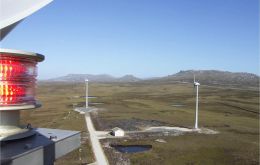
More than 24% of electric power demand in windy Argentina was supplied by eolic energy during the month of July, which is considered a historic record when it comes to renewable energies, pointed out by the country's Energy Secretariat.
-
Saturday, December 26th 2020 - 09:50 UTC
Brazil pledges a target of 45% renewable energy by 2050

Brazil has now moved past the 7 gigawatts (GW) mark of total installed renewables – and has set the ambition of 45% of its energy needs being generated in similar form by 2050.
-
Saturday, March 16th 2019 - 09:15 UTC
The climate strikers should inspire us all to act at the next UN summit

By Antonio Guterres (*) Without ambitious action, the Paris agreement is meaningless. So I’m bringing world leaders together to build the future we need. Tens of thousands of young people took to the streets on Friday with a clear message to world leaders: act now to save our planet and our future from the climate emergency.
-
Wednesday, October 17th 2018 - 17:56 UTC
Uruguay's wind energy revolution highlighted in leading yearly report
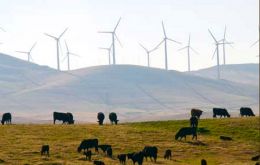
Uruguay ranks second in the world among eolic-energy producing countries with a 40.1% share and is the only non-European nation in a top position, according to a report by the SEG Ingeniería consultancy firm.
-
Wednesday, July 11th 2018 - 07:00 UTC
Petrobras diversifies to renewables: signs MoU with Total's green arm
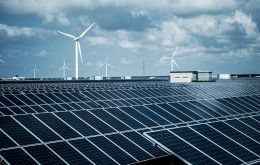
Brazilian state-run oil and gas company Petrobras has signed a memorandum of understanding (MoU) with French oil major Total SA and its green arm Total Eren SA for collaboration in renewable projects in Brazil.
-
Tuesday, January 31st 2017 - 23:19 UTC
Argentina declares 2017 Renewable Energy Year; 20% electricity share by 2025
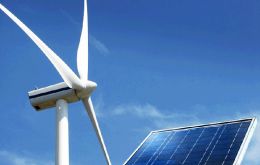
Argentina has declared 2017 as the ‘Renewable Energy Year’ as the country looks to increase awareness about the advantages of renewable energy and the important of sustainability. A decree issued by the government calls for energy diversification through the use of renewable energy sources in the electricity generation as well as thermal energy sector.
